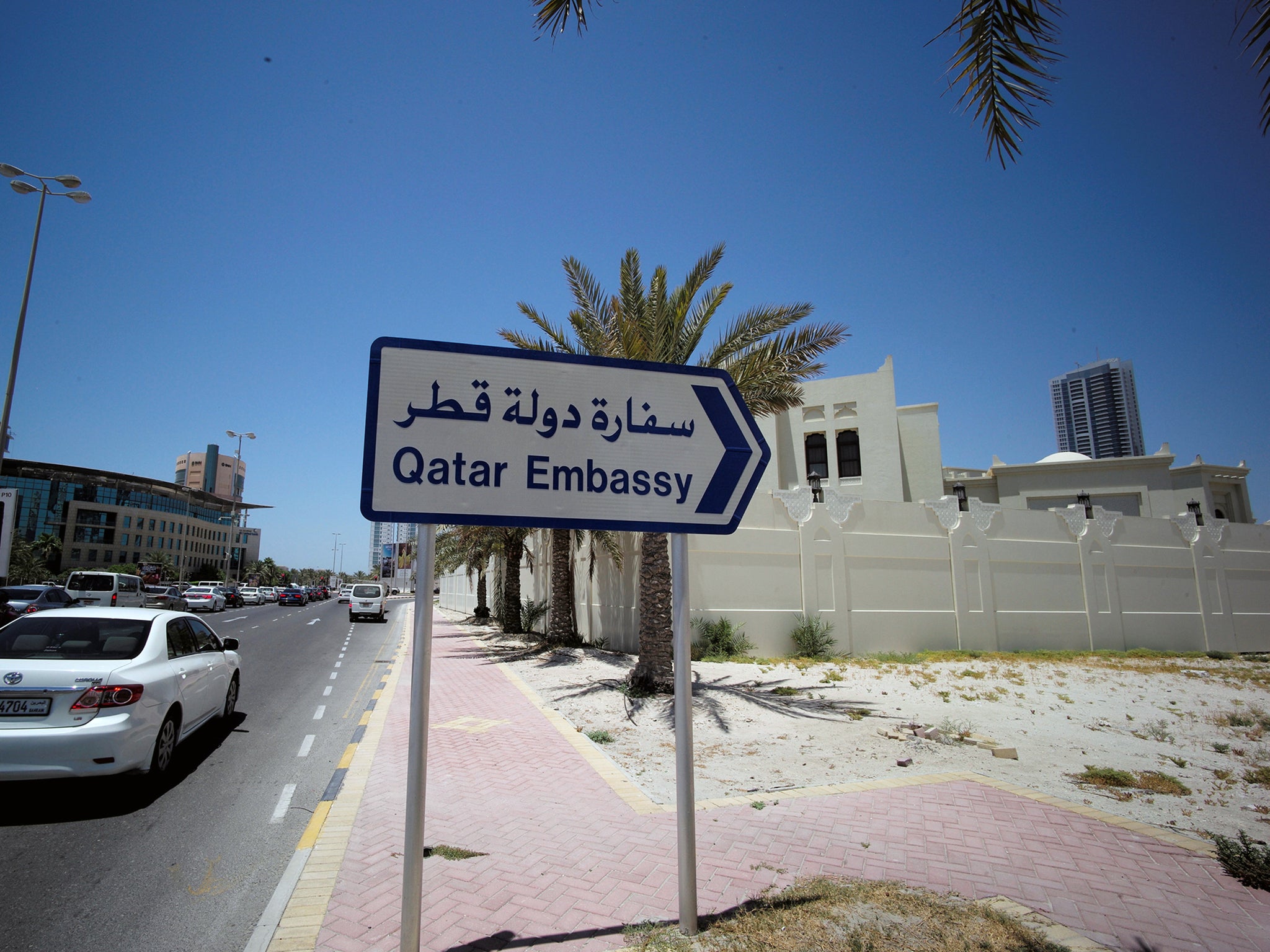Qatar given an extra 48 hours by Gulf states to consider their demands as Donald Trump wades in
Intermediary Kuwait to handle Doha’s response to neighbours as US president claims ‘interesting things’ are happening following phone calls to regional leaders

Qatar’s leaders have agreed to let Kuwait handle negotiations between Doha and its Gulf neighbours after they severed all diplomatic ties with the tiny kingdom last month.
The energy-rich Gulf state was given an extra 48 hours to respond to a list of 13 demands such as closing down state-owned al Jazeera and cutting off alleged links to Isis, Iran and the Muslim Brotherhood which the Doha government had previously described as so far-reaching they appear intended to be rejected.
Qatar's foreign minister is expected to meet Kuwaiti emir Sabah Al-Ahmad Al-Jaber Al-Sabah later on Monday to give him Doha's response, state media reported.

US President Donald Trump urged unity in phone calls to the emirs of Qatar and the UAE as well as Saudi Arabia’s King Salman on Sunday night. “Spoke yesterday with the King of Saudi Arabia about peace in the Middle-East. Interesting things are happening!” he later wrote on Twitter.
The president previously appeared to praise Riyadh and its allies’ decision to suspend all travel, trade and diplomatic relations with Qatar, noting how he had called for a crackdown on terrorism during his recent trip to the Middle East.
In a statement on Sunday, the White House reiterated that “the overriding objective of [Mr Trump’s] initiative is the cessation of funding for terrorism.”
Saudi Arabia, Bahrain, the UAE and Egypt - followed by a handful of other Muslim countries - abruptly cut off ties on 5 June over Doha’s alleged funding of organisations considered terror groups by its neighbours and other meddling in foreign affairs.
The move plunged the country into crisis, sending the stock market tumbling and effectively closing down its airspace.
Families have been split up and myriad businesses affected by demands for Qatari nationals to leave the countries involved, and vice versa.
Qatar strongly denies the allegations against it.
Foreign ministers from the four countries will meet in Cairo to discuss the situation on Wednesday, Egypt said.
Although further sanctions have been threatened if Doha does not capitulate, the UAE's foreign minister Anwar Gargash has played down the chances of an escalation, saying “the alternative is not escalation but parting ways,” suggesting Qatar may be forced out of the Gulf Cooperative Council (GCC).
Reuters contributed to this report
Join our commenting forum
Join thought-provoking conversations, follow other Independent readers and see their replies
Comments
Bookmark popover
Removed from bookmarks